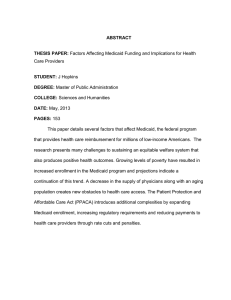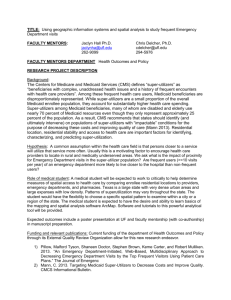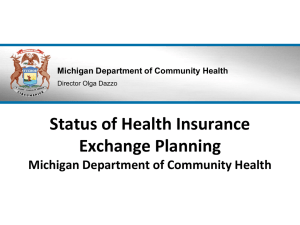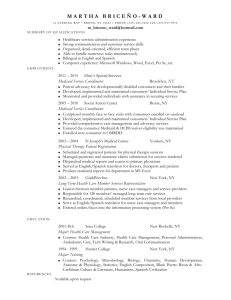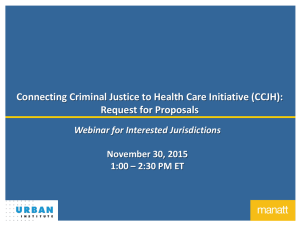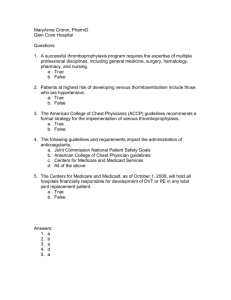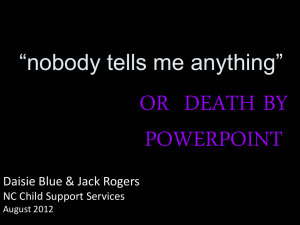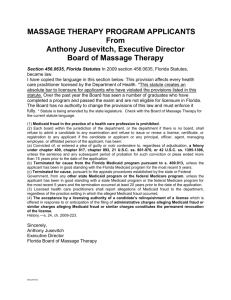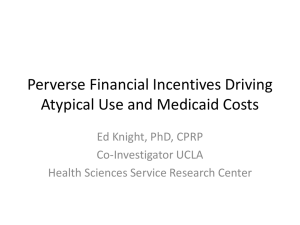CCJH Initiative RFP Webinar Questions and Answers
advertisement
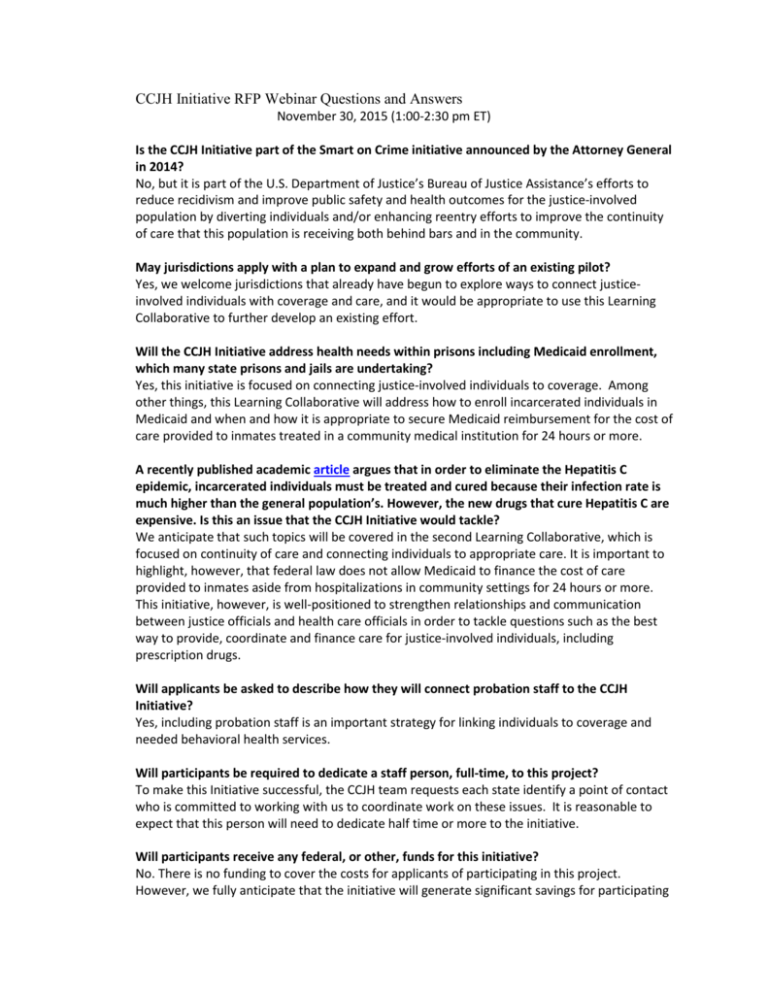
CCJH Initiative RFP Webinar Questions and Answers November 30, 2015 (1:00-2:30 pm ET) Is the CCJH Initiative part of the Smart on Crime initiative announced by the Attorney General in 2014? No, but it is part of the U.S. Department of Justice’s Bureau of Justice Assistance’s efforts to reduce recidivism and improve public safety and health outcomes for the justice-involved population by diverting individuals and/or enhancing reentry efforts to improve the continuity of care that this population is receiving both behind bars and in the community. May jurisdictions apply with a plan to expand and grow efforts of an existing pilot? Yes, we welcome jurisdictions that already have begun to explore ways to connect justiceinvolved individuals with coverage and care, and it would be appropriate to use this Learning Collaborative to further develop an existing effort. Will the CCJH Initiative address health needs within prisons including Medicaid enrollment, which many state prisons and jails are undertaking? Yes, this initiative is focused on connecting justice-involved individuals to coverage. Among other things, this Learning Collaborative will address how to enroll incarcerated individuals in Medicaid and when and how it is appropriate to secure Medicaid reimbursement for the cost of care provided to inmates treated in a community medical institution for 24 hours or more. A recently published academic article argues that in order to eliminate the Hepatitis C epidemic, incarcerated individuals must be treated and cured because their infection rate is much higher than the general population’s. However, the new drugs that cure Hepatitis C are expensive. Is this an issue that the CCJH Initiative would tackle? We anticipate that such topics will be covered in the second Learning Collaborative, which is focused on continuity of care and connecting individuals to appropriate care. It is important to highlight, however, that federal law does not allow Medicaid to finance the cost of care provided to inmates aside from hospitalizations in community settings for 24 hours or more. This initiative, however, is well-positioned to strengthen relationships and communication between justice officials and health care officials in order to tackle questions such as the best way to provide, coordinate and finance care for justice-involved individuals, including prescription drugs. Will applicants be asked to describe how they will connect probation staff to the CCJH Initiative? Yes, including probation staff is an important strategy for linking individuals to coverage and needed behavioral health services. Will participants be required to dedicate a staff person, full-time, to this project? To make this Initiative successful, the CCJH team requests each state identify a point of contact who is committed to working with us to coordinate work on these issues. It is reasonable to expect that this person will need to dedicate half time or more to the initiative. Will participants receive any federal, or other, funds for this initiative? No. There is no funding to cover the costs for applicants of participating in this project. However, we fully anticipate that the initiative will generate significant savings for participating jurisdictions through the more effective use of federal financing sources for coverage and potentially reductions in incarceration rates. In addition, the Initiative’s technical experts will provide information on the circumstances under which federal Medicaid administrative matching funds are available for the staffing and other expenses associated with the Medicaid elements of the Initiative. Are there any requirements for travel? No.
